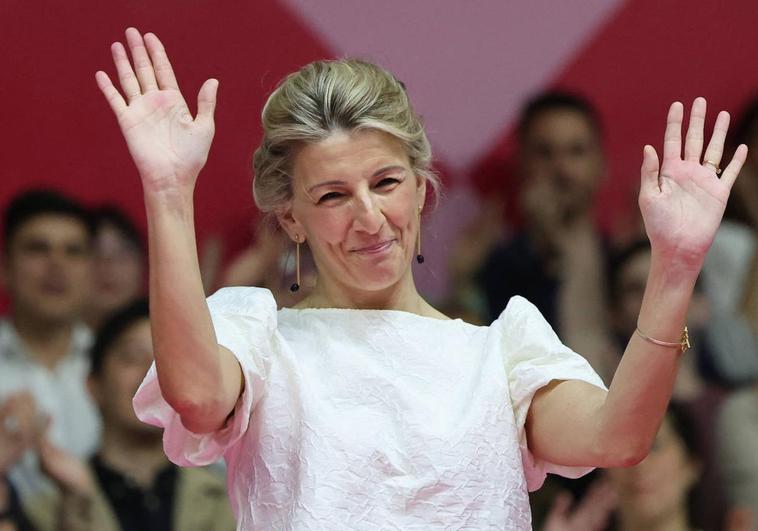Spoiled for choice
Launching new political party Sumar, Yolanda Díaz declared her ambition to be Spain's first female prime minister, adding that Spanish women are "tired - very tired - of being patronised and ignored"
MARK NAYLER
Lunes, 10 de abril 2023, 16:30
For the last few years, right-leaning voters in Spain have had three choices: the Conservative Popular Party (PP); a younger version named Ciudadanos, whose ... decline has effectively narrowed the right-of-centre choice to two; and Vox, further to the right than both of those parties. Lefties have had just two options: the Socialists, a party dogged by corruption almost as much as the PP, and the more radical Podemos. The launch of a new left wing force called Sumar last weekend, led by current labour minister and deputy prime minister Yolanda Díaz, changes that.
In one way, Sumar is a mirror image of Ciudadanos (before the latter party's demise, that is): it sits to the left of the Socialists and slightly to the right of Podemos, which has refused to join the new alliance. But it's light on ideology. Díaz, whose labour reforms are likely to be the coalition's most enduring positive legacy, is focusing instead on practical, day-to-day issues such as employment and housing. She is intent on listening to voters (a laughable notion, one imagines, within the authoritarian government of which she is a member) and rejects what she calls the "politics of confrontation". It's a long-overdue shift of emphasis in a country in which personal attacks often take the place of reasoned debate.
Launching Sumar in Madrid the Sunday before last, Díaz declared her ambition to be Spain's first female prime minister, adding that Spanish women are "tired - very tired - of being patronised and ignored". Ignored? Díaz is a member of the first Spanish government to have more female than male ministers. Women occupy some of the top corporate jobs in Spain - CEO of Santander and managing director of Michelin, for example - as well as two of the country's most powerful political positions, the presidency of Madrid and the mayorship of Barcelona (Ada Colau, the occupant of the latter office, has joined Sumar). There might be a way to go in terms of equal representation in the upper echelons of politics and business, but this is hardly a country in which women are a repressed underclass, as Díaz seemed to imply.
It's true that more choice on the left means there's a higher chance of a splintered vote, which could play into the hands of the PP and Vox.
But the fact that there will be another party in the running this December is a good thing in itself - it adds yet more variety to Spain's vibrant political scene, which for forty years was dominated by the Socialists and the Conservatives. That ended with the emergence of Ciudadanos and Podemos in 2015. Eight years on, there's still no chance whatsoever of a reversion to the old two-party system.
¿Tienes una suscripción? Inicia sesión
